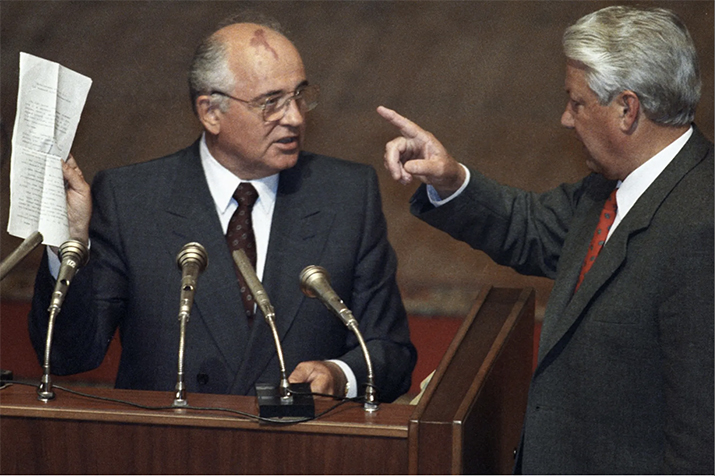THE DEATH OF MIKHAIL GORBACHEV
Mikhail Gorbachev, who died in Moscow on August 30, was a most singular individual. When he became General Secretary of the Communist Party of the Soviet Union on 11 March 1985, he was only 54 years old. Before him lay the prospect of decades of absolute power, seasoned with a dose of palace intrigue, riches more than enough and a pinch of fear for the constant danger of being poisoned and subdued amid the honours reserved for the heroes in the rooms of the Kremlin. In short, he is the typical dish of a dictator. But he is a singular type, absolute power is not enough for him. He decides to include two new ingredients in the recipe for his country: a handful of reorganization and a smear of transparency. This is why anyone in the West knows at least two words of Russian: perestroika and glasnost, revolutionary words that overflowed from newspapers and televisions in the 1980s and which are now relegated to history books.
Gorbachev represented an absolute novelty. The young secretary introduced himself by loosening the grip of censorship and the political police on society. The impact on freedom of the press and opinion was immediate. Soviet citizens were also granted the right to travel anywhere in their country, which until then was subject to such a number of permits to be rendered practically impossible. Nobel Peace Prize winner in 1990, between 1985 and 1991 he negotiated the withdrawal from Afghanistan, the end of the Cold War, the fall of the Berlin Wall and nuclear disarmament.
Of course, not everyone likes to hand over slices of power, and some in his government found the new course somewhat rash. Furthermore, the USSR was going through a period of serious economic and political crisis, which had made the regime unable to cope with autonomist forces. So, the man who wanted more freedom was taken hostage in his vacation home in Crimea and elements of his own executive tried to depose him.
It was August 21, 1991, people took to the streets in Moscow to defend the freedom they had just won, but as often happens, someone saw further ahead than others. The president of the Russian Republic, Boris Yeltsin, after leading the popular resistance and having imposed the liberation of Gorbachev, nominated himself the real holder of power, relegating the actual Soviet leader to the background.
Sometimes complex historical events can be summarized in one sentence. Here we need a photo, the one in which Yeltsin points his finger at Gorbachev in front of thousands of Soviet deputies, ordering him to immediately dissolve the CPSU.
Thus ends the Soviet Union and the political parable of a man who wanted to reform it. What happened to Russia in the following years is there for all to see. Despite this, Gorbachev, however much he was greatly appreciated abroad, has always had a very bad reputation at home. He could have continued with a despotic "reign" but he was a singular man.







